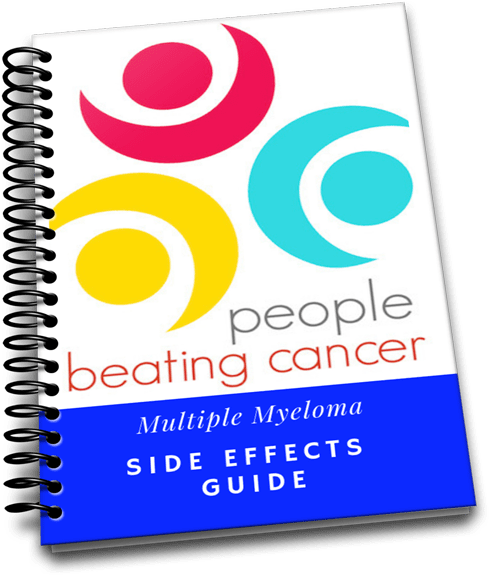
Recently Diagnosed or Relapsed? Stop Looking For a Miracle Cure, and Use Evidence-Based Therapies To Enhance Your Treatment and Prolong Your Remission
Multiple Myeloma an incurable disease, but I have spent the last 25 years in remission using a blend of conventional oncology and evidence-based nutrition, supplementation, and lifestyle therapies from peer-reviewed studies that your oncologist probably hasn't told you about.
Click the orange button to the right to learn more about what you can start doing today.
- You are here:
- Home »
- Blog »
- Multiple Myeloma »
- Multiple Myeloma Side Effects- Diarrhea, Fatigue-
Multiple Myeloma Side Effects- Diarrhea, Fatigue-

“Nonetheless, with the advent of present novel therapies, specialists have challenged the notion that HDT/ASCT should be administered early after diagnosis.”
Hi David- I will be finishing chemo in four weeks, then stem cell transplant. I have experience side effects of extreme exhaustion and diarrhea followed by constipation. Can I expect to. Side effects improve? Thanks, Carli-
- MM Survivor
- MM Cancer Coach
- Director PeopleBeatingCancer
Recommended Reading-
- Long-Term Multiple Myeloma Survivor- If I Knew Then What I Know Now
- Multiple Myeloma Chemotherapy – Antioxidants Enhance Action
- Multiple Myeloma- PreHabilitation Pre Induction of RVd
Chemotherapy-Induced Constipation and Diarrhea: Pathophysiology, Current and Emerging Treatments
Persistent Fatigue in Hematopoietic Stem Cell Transplantation Survivors
Results-HCT survivors reported increased physical (p < .001), mental (p <.001), and overall fatigue (p < .001) as well as increased anxiety (p < .05) and depression (p < .01) compared to healthy controls. Red blood cell (RBC) levels were significantly lower in HCT survivors (p < .001). RBC levels for both groups, however, were in the normal range. TNF-α (p < .001) and IL-6 (p < .05) were significantly higher in HCT survivors.
Conclusions- Persistent fatigue in HCT survivors compared to healthy controls with occasional tiredness is accompanied by increased anxiety and depression along with decreased RBCs. Elevated TNF-α and IL-6 may be important biomarkers.

